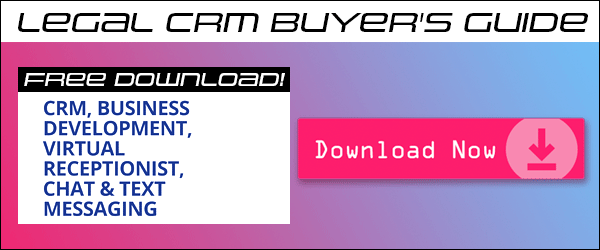[ad_1]
 Necessity is the mother of invention and the horror of the COVID-19 pandemic certainly served as an unprecedented jolt of necessity for the legal system. Coming down the backside of the outbreak, uncertainty abounds as everyone wonders what adaptations will stick in the world to come, but remote legal proceedings don’t appear to be going anywhere.
Necessity is the mother of invention and the horror of the COVID-19 pandemic certainly served as an unprecedented jolt of necessity for the legal system. Coming down the backside of the outbreak, uncertainty abounds as everyone wonders what adaptations will stick in the world to come, but remote legal proceedings don’t appear to be going anywhere.
Lawyers will get back on the road for a number of in-person events, but the days of clients signing off on cross-country overnight trips for four-hour interviews are safely in the rearview mirror. For that matter, clients are going to cast a more favorable eye on arbitrations and mediations where tech savvy neutrals can drive down costs.
Running proceedings through Zoom was all well and good for a while and we all got a good laugh out of it, but if we’re going to keep this up, there’s going to need to be a solution better fitted to match the profession’s unique requirements.
At the recent ILTACON gathering, I chatted with Calloquy about its remote hearing platform that takes the functions we’ve come to expect from teleconferencing and adds the extra quirks that lawyers need, having built Calloquy from the ground up to serve lawyers. As they say when describing the platform’s security, “no backdoor access, Zoom bombs, or lawyer cat here.”

This might be the simplest of Calloquy’s added features but one of its most striking to see in action: the proceeding is designed to mirror an in-person gathering. Folks are virtually sitting where they’re supposed to be sitting complete with titles to keep things straight. All the invitation links are personalized to keep outsiders from crashing the proceeding. And you can see everyone at all times. So much for that off-camera witness coaching!
Just seeing things look right is a big improvement, but that’s just the start for Calloquy. The system facilitates real-time court reporting which can be viewed as a column alongside the proceeding. There’s a repository for organizing all the transcripts and exhibits, with buttons allowing you to reveal the documents at the appropriate time and annotate as you go. Keeping exhibit sharing within the system may also seem like a small thing but it keeps risks of inadvertent disclosure down to not have to stop the meeting and email around everything to a separately maintained list — it’s on screen for everyone at the same time.
There are breakout rooms for mediation negotiations and they can be set up to allow complete privacy and limit access so only the mediators can join the room (and then only after virtually “knocking” on the door).
And, of course, remote proceedings make justice a little bit more accessible for those who face challenges getting to the courthouse. Calloquy pledges to always make its platform accessible to legal aid organizations and pro bono matters.
Having moved to Above the Law several years ago now, it’s been a while since I’ve had to sit in on a mediation or deposition, but playing around with Calloquy felt just like what I was used to. Zoom and Teams may have gotten the legal system through the darkest days of the pandemic, but it’s going to take a lawyer-centric platform like Calloquy to get the profession comfortable with the new normal.
 Joe Patrice is a senior editor at Above the Law and co-host of Thinking Like A Lawyer. Feel free to email any tips, questions, or comments. Follow him on Twitter if you’re interested in law, politics, and a healthy dose of college sports news. Joe also serves as a Managing Director at RPN Executive Search.
Joe Patrice is a senior editor at Above the Law and co-host of Thinking Like A Lawyer. Feel free to email any tips, questions, or comments. Follow him on Twitter if you’re interested in law, politics, and a healthy dose of college sports news. Joe also serves as a Managing Director at RPN Executive Search.
[ad_2]





